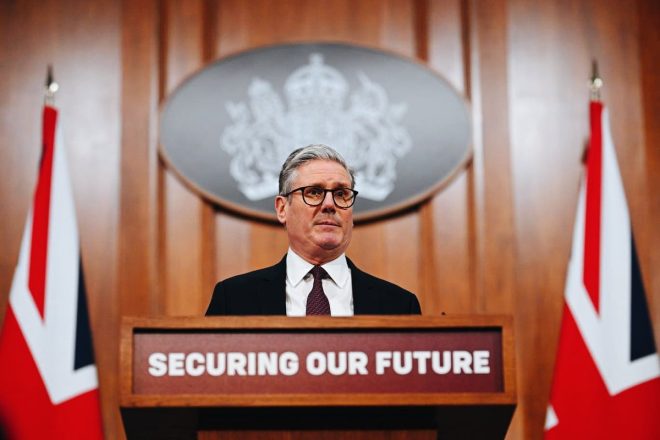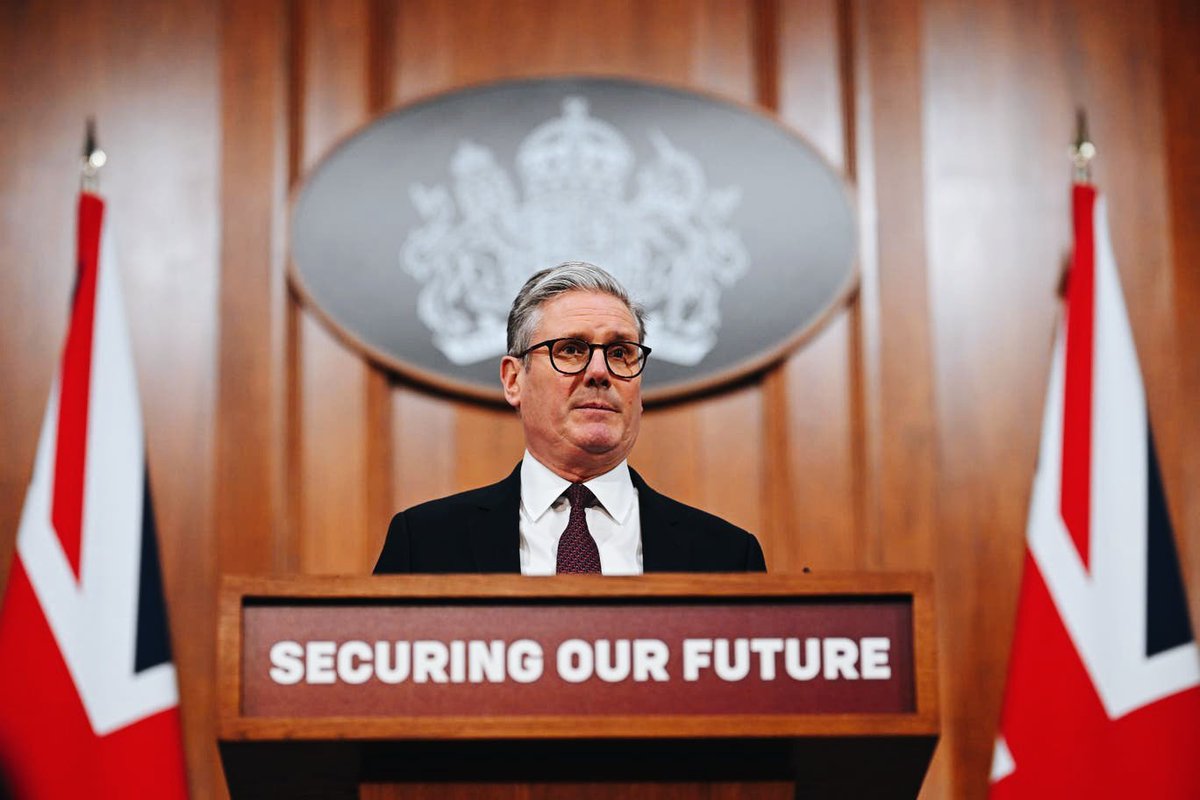
UK PM Starmer’s Peacekeeping Force Deployment to Ukraine: Operational Phase Announced
In a significant development in international relations, UK Prime Minister Keir Starmer has officially announced that the plan to deploy a "peacekeeping force" to Ukraine is moving into the "operational phase." This announcement comes amidst ongoing tensions in the region, as the conflict in Ukraine continues to escalate, drawing attention from global leaders and organizations concerned about stability and security in Eastern Europe.
Context: The Need for Peacekeeping Forces
The decision to deploy peacekeeping forces is rooted in the urgent need to stabilize Ukraine, where ongoing conflicts have led to widespread humanitarian crises and significant geopolitical challenges. The situation in Ukraine has drawn international scrutiny, with various nations calling for intervention to protect civilians and maintain peace. Starmer’s announcement signals a proactive approach by the UK government, aiming to contribute positively to the resolution of the ongoing conflict.
What the Operational Phase Means
Transitioning to the "operational phase" indicates that the UK is moving beyond planning and discussions into actionable steps. This phase will likely involve logistics, troop deployments, and coordination with other nations and international organizations. The operational phase is critical as it lays the groundwork for how the peacekeeping forces will function on the ground, ensuring that the deployment is effective and meets its intended goals.
Implications for Regional Stability
The deployment of a peacekeeping force could have several implications for regional stability. Firstly, it may help reduce tensions between Ukraine and Russia, as the presence of international forces could deter further aggression. Secondly, it could provide much-needed support to Ukrainian civilians affected by the conflict, offering protection and assistance in areas most impacted by violence.
- YOU MAY ALSO LIKE TO WATCH THIS TRENDING STORY ON YOUTUBE. Waverly Hills Hospital's Horror Story: The Most Haunted Room 502
Moreover, the UK’s involvement may encourage other nations to take similar steps, potentially leading to a broader coalition of peacekeeping forces in Ukraine. This could foster a more coordinated international response to the crisis, enhancing the overall effectiveness of peacekeeping efforts.
International Reactions
Reactions to Starmer’s announcement have been mixed. Supporters of the plan argue that it is a necessary step to protect Ukraine’s sovereignty and support its people during a time of crisis. Conversely, some critics express concerns about the potential for escalation, fearing that the presence of foreign troops could provoke further conflict with Russia.
International organizations, including the United Nations, have also been monitoring the situation closely. The UN has long advocated for peaceful resolutions to conflicts and may play a role in coordinating the peacekeeping efforts alongside the UK and other nations.
The Broader Geopolitical Landscape
The announcement comes at a time when geopolitical tensions are high, not just in Ukraine but also globally. The UK has been actively involved in supporting Ukraine through various means, including sanctions against Russia and military aid. The decision to deploy peacekeeping forces is a continuation of this commitment, demonstrating the UK’s stance on upholding international law and supporting nations facing aggression.
Additionally, the operational phase of the peacekeeping deployment aligns with broader NATO strategies, as the alliance seeks to enhance its presence in Eastern Europe to deter potential threats from Russia. The coordination between NATO and UK forces will be crucial in ensuring that the peacekeeping mission is successful and that the safety of all involved is prioritized.
Conclusion: A Step Towards Peace
Prime Minister Starmer’s announcement marks a pivotal moment in the UK’s response to the ongoing crisis in Ukraine. As the plan transitions into the operational phase, it presents an opportunity for the UK to play a crucial role in fostering peace and stability in the region. The deployment of peacekeeping forces not only aims to protect civilians but also serves as a symbol of international solidarity against aggression.
While challenges remain, the move is a positive step towards addressing the humanitarian needs of the Ukrainian people and contributing to a diplomatic solution to the conflict. The coming weeks and months will be critical in determining the effectiveness of the peacekeeping efforts and the overall impact on the situation in Ukraine.
As the world watches closely, the hope is that this initiative will pave the way for lasting peace and security in Ukraine and contribute to a more stable geopolitical landscape in Eastern Europe. The commitment to support Ukraine during this tumultuous time underscores the importance of international cooperation in addressing global conflicts and promoting human rights.
In summary, the deployment of a UK peacekeeping force to Ukraine is a significant event in the ongoing conflict, reflecting a commitment to peace and stability in the region. As the operational phase unfolds, it will be essential to monitor the developments and their implications for both Ukraine and the broader international community.

JUST IN:
UK PM Starmer announced that the plan of deploying a “peacekeeping force” to Ukraine is moving to the “operational phase” – Independent reports pic.twitter.com/iTluJGlFvy
— Megatron (@Megatron_ron) March 15, 2025
JUST IN: UK PM Starmer announced that the plan of deploying a “peacekeeping force” to Ukraine is moving to the “operational phase”
The geopolitical landscape is always shifting, and recent announcements have made waves across Europe. UK Prime Minister Keir Starmer has confirmed that plans for deploying a “peacekeeping force” to Ukraine are transitioning into the “operational phase.” This move comes at a time when the situation in Ukraine remains tense, and the need for international support is more pressing than ever. With ongoing conflicts and humanitarian crises, the deployment of peacekeepers could play a critical role in stabilizing the region.
Understanding the Context of Peacekeeping in Ukraine
To appreciate the significance of Prime Minister Starmer’s announcement, it’s essential to understand the background. Ukraine has been embroiled in conflict since 2014 when Russia annexed Crimea. The situation escalated with the ongoing war in Eastern Ukraine, where various factions have been involved in a struggle for power. The humanitarian impact has been devastating, leading to thousands of casualties and displacing millions.
Peacekeeping forces have historically been deployed in conflict zones to help maintain peace and facilitate humanitarian aid. The involvement of a UK peacekeeping force could add a layer of international oversight and support, which many believe is crucial for Ukraine’s path toward stability.
The Role of the UK in International Peacekeeping
The UK has a long history of participating in international peacekeeping missions. From the Balkans to Africa and beyond, British troops have been involved in various missions aimed at reducing conflict and providing humanitarian assistance. By taking a leadership role in Ukraine, the UK is signaling its commitment to global peace and security.
Prime Minister Starmer’s announcement reflects the UK’s willingness to step up in response to international crises. This aligns with the UK’s broader strategy of fostering stability in Europe and supporting allies in times of need.
What Does “Operational Phase” Mean?
When the UK government refers to the “operational phase,” it signifies that the groundwork for deploying forces is being laid out. This involves logistical planning, securing necessary approvals, and coordinating with international partners. In the context of Ukraine, this means that the UK is actively preparing to send troops and resources to support peacekeeping efforts.
The operational phase usually includes training for personnel, establishing command structures, and setting up communication lines. It’s a multi-faceted approach that ensures the peacekeeping force can effectively address the challenges they may face on the ground.
International Reactions to the Announcement
The response to Prime Minister Starmer’s announcement has been mixed. Some view it as a crucial step toward peace, while others express concern about the potential for escalation. Various international actors are watching closely, as the deployment of a peacekeeping force could influence the dynamics of the conflict.
Countries within the European Union have generally supported the idea of increased international involvement in Ukraine. However, Russia has reacted negatively to any suggestion of foreign troops on its borders. Understanding these dynamics is crucial for predicting how the situation may evolve.
Potential Challenges Ahead
Deploying a peacekeeping force is not without its challenges. The situation in Ukraine is complex and fraught with danger. Peacekeepers often find themselves in volatile environments where their presence can provoke hostility from conflicting parties.
Additionally, there are logistical challenges to consider. Coordinating with other nations and ensuring that the peacekeeping force is adequately equipped and supported are critical components of a successful deployment. The UK government will need to carefully navigate these issues to ensure the safety and effectiveness of its troops.
The Importance of Humanitarian Aid
While military presence can help stabilize a region, it’s vital to remember that humanitarian aid is just as critical. The situation in Ukraine has led to significant human suffering, with many people in dire need of food, medical assistance, and shelter.
The UK’s peacekeeping mission should ideally include a robust humanitarian component. Collaborating with NGOs and international organizations can ensure that aid reaches those who need it most. This dual approach of providing security while addressing humanitarian needs is essential for lasting peace.
Looking Ahead: What’s Next for Ukraine?
As the UK moves forward with its plans for a peacekeeping force in Ukraine, the world will be watching closely. The success of this mission could set a precedent for how international communities respond to similar crises in the future.
Engagement from the UK and other nations could pave the way for diplomatic solutions and long-term stability in Ukraine. However, it’s essential to remain cautious and proactive in addressing the myriad challenges that lie ahead.
By keeping an eye on the developments and understanding the nuances of the situation, we can contribute to a more informed discussion about peacekeeping and international relations.
Conclusion: A Step Towards Stability
The announcement of a UK peacekeeping force moving into the operational phase is a significant development in the ongoing conflict in Ukraine. It highlights the UK’s commitment to international peace and security. While challenges remain, the potential for a stabilized Ukraine is a hopeful prospect that could positively impact the region and beyond.
For those following the situation, staying informed and engaged will be key. The developments in Ukraine may shape not only the future of the country but also the geopolitical landscape of Europe.
For more detailed coverage, you can refer to the original report by the Independent [here](https://www.independent.co.uk/news/uk/home-news/uk-peacekeeping-force-ukraine-starmer-b2330665.html).
